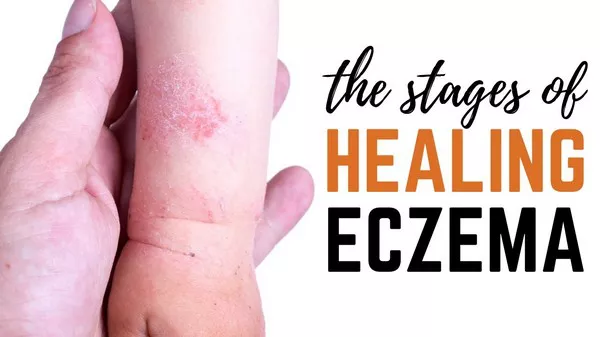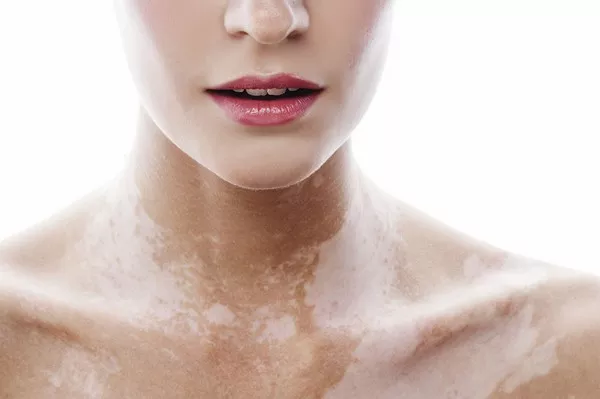Eczema, also known as atopic dermatitis, is a chronic inflammatory skin condition characterized by periods of flare-ups and remission. While there is no definitive cure for eczema, effective management strategies can significantly alleviate symptoms and promote healing. Understanding the stages of eczema healing is essential for individuals affected by this condition to navigate their treatment journey effectively. From the initial flare-up to achieving remission, each stage presents unique challenges and opportunities for healing and symptom relief.
Stages of Eczema Healing
1. Initial Flare-Up:
The onset of eczema often manifests as an acute flare-up characterized by redness, itching, dryness, and inflammation of the skin. The affected areas may appear raised, scaly, and intensely itchy, causing discomfort and distress to the individual. Common trigger factors for eczema flare-ups include exposure to irritants, allergens, stress, and changes in weather conditions.
During this stage, it is crucial to identify and address potential triggers to prevent exacerbating symptoms further. Moisturizing the skin regularly with emollients and avoiding harsh soaps or detergents can help alleviate dryness and irritation. Additionally, topical corticosteroids or anti-inflammatory medications may be prescribed by a healthcare professional to reduce inflammation and itching.
2. Treatment Phase:
The treatment phase focuses on managing symptoms and addressing the underlying inflammation to promote healing. Various treatment options are available, including topical corticosteroids, calcineurin inhibitors, moisturizers, and antihistamines. Topical corticosteroids are often the first-line treatment for eczema flare-ups, as they help reduce inflammation and itching effectively.
In addition to topical medications, lifestyle modifications play a crucial role in eczema management. Avoiding known triggers, such as certain foods, environmental allergens, and stress, can help prevent flare-ups and promote healing. Adopting a gentle skincare routine, including regular moisturization and mild cleansing, can also contribute to maintaining skin hydration and integrity.
3. Improvement Phase:
As treatment progresses, individuals may experience visible improvements in their eczema symptoms. The skin becomes less inflamed, redness diminishes, and itching subsides, indicating the beginning of the healing process. With consistent adherence to the prescribed treatment plan and trigger avoidance strategies, the skin’s barrier function improves, allowing for better moisture retention and reduced susceptibility to flare-ups.
During this phase, it is essential to continue monitoring the skin’s condition and adjusting treatment as needed. Emollients and moisturizers should be applied regularly to prevent dryness and maintain skin hydration. It is also advisable to follow up with a healthcare professional to assess treatment efficacy and address any concerns or complications.
4. Remission Phase:
While eczema is a chronic condition, achieving periods of remission with minimal or no symptoms is attainable with proper management. The remission phase is characterized by a significant reduction in flare-ups and symptom severity, allowing individuals to enjoy improved quality of life and skin health.
However, it is important to note that eczema can recur, especially during times of stress or exposure to triggers. Therefore, maintaining a proactive approach to eczema management is essential even during periods of remission. This may involve regular skincare routines, trigger avoidance strategies, and ongoing communication with healthcare providers to address any emerging concerns.
Factors Influencing Healing
1. Severity of Eczema: The severity of eczema can significantly influence the healing time and process. Individuals with mild eczema may experience quicker resolution of symptoms with appropriate treatment and lifestyle modifications. In contrast, those with severe or persistent eczema may require more intensive management strategies and longer healing times.
2. Individual Differences: Various individual factors, including skin type, age, and overall health, can influence the healing process of eczema. For example, individuals with sensitive skin or underlying health conditions may experience greater challenges in managing eczema symptoms. Age-related factors, such as pediatric eczema in infants and children, may require specialized care and treatment approaches tailored to the individual’s developmental stage.
3. Treatment Adherence: Adherence to the prescribed treatment plan is critical for optimal healing and symptom management in eczema. Failure to adhere to medication regimens or recommended lifestyle modifications can impede progress and increase the risk of flare-ups. Healthcare providers play a vital role in educating and supporting individuals with eczema to ensure they understand the importance of treatment adherence in achieving positive outcomes.
4. Trigger Management: Identifying and managing triggers are essential components of eczema management and healing. Common triggers include certain foods, environmental allergens, irritants, stress, and climate changes. By avoiding known triggers and implementing preventive measures, such as using hypoallergenic products and practicing stress-reduction techniques, individuals can minimize the risk of flare-ups and promote long-term healing.
Additional Considerations
Actionable Tips: Managing eczema effectively requires a multifaceted approach that encompasses skincare routines, trigger avoidance strategies, and stress management techniques. Some practical tips for promoting healing and symptom relief include:
- Establishing a consistent skincare routine involving gentle cleansing and moisturization.
- Using fragrance-free and hypoallergenic skincare products to minimize irritation.
- Avoiding long, hot showers or baths, as they can strip the skin of its natural oils.
- Identifying and avoiding trigger factors, such as certain foods, environmental allergens, and stressors.
- Practicing stress-reduction techniques, such as mindfulness meditation or deep breathing exercises, to mitigate emotional triggers.
- Seeking support from healthcare professionals, support groups, or online communities for guidance and encouragement.
Credible Sources: When seeking information about eczema healing and management, it is essential to rely on credible sources backed by scientific evidence. Reputable sources include medical journals, dermatology organizations, and healthcare websites accredited by recognized authorities. Consulting with qualified healthcare professionals, such as dermatologists or allergists, can also provide personalized guidance and treatment recommendations based on individual needs and preferences.
Conclusion
In conclusion, understanding the stages of eczema healing and the factors influencing the process is crucial for effectively managing this chronic skin condition. By implementing appropriate treatment strategies, adhering to prescribed regimens, and adopting preventive measures, individuals with eczema can achieve improved symptom control, promote healing, and enjoy a better quality of life. With ongoing support from healthcare providers and a proactive approach to self-care, individuals can navigate their eczema journey with confidence and resilience.

























